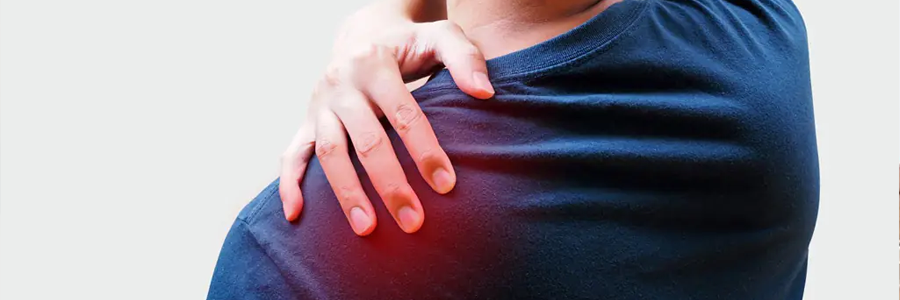contact@dranimeshkumar.in

Frozen shoulder also known as adhesive capsulitis, is a very common condition, in this the shoulder stiffens and lead to reducing its mobility and movement of the Shoulders. The term Frozen Shoulder is often used for arthritis which is incorrect, as these two conditions are unrelated. Frozen shoulder specifically refers to the shoulder joints, while arthritis may refer to other or multiple joints. It commonly affects people in the age bracket of 40 and 60 years, and it is more likely occur in women than in men, approximately It is estimated to affect about 3 percent of people. It can affect one or both shoulders.
Frozen Shoulder Signs and symptoms typically begin gradually, worsen over time and then resolve, usually within one to three years. Risk of developing frozen shoulder increases if a person is recovering from a medical condition or a procedure that prevents one from moving the arms, such as a stroke or a mastectomy.
Treatment for frozen shoulder involves range of motion exercises, sometimes corticosteroids and numbing medications are injected into the joint capsule. In a certain percentage of cases, arthroscopic surgery may be advised to loosen the joint capsule so that it can have free movement and move freely.
Copyright © 2024, Dr. Animesh Kumar.